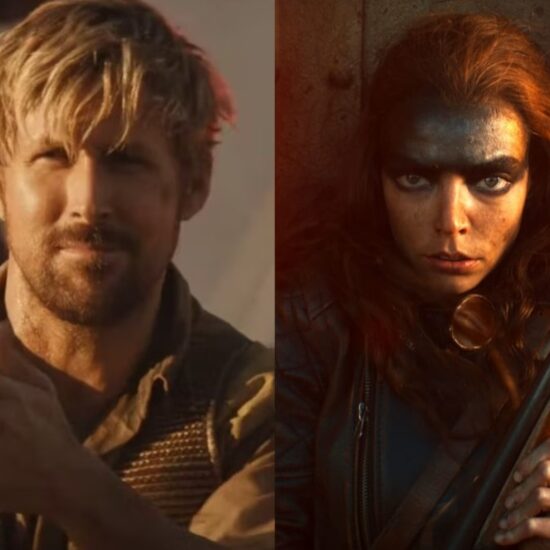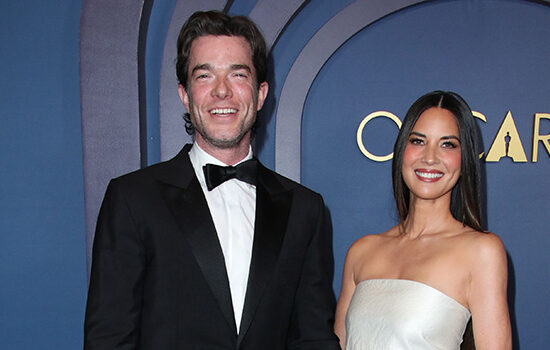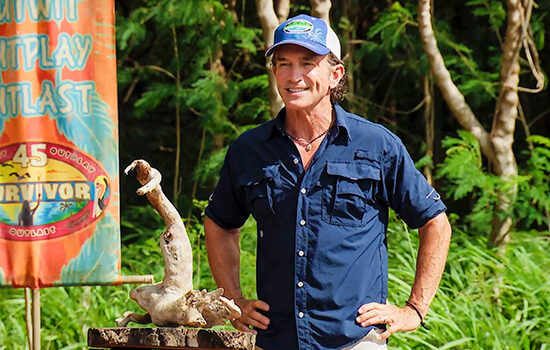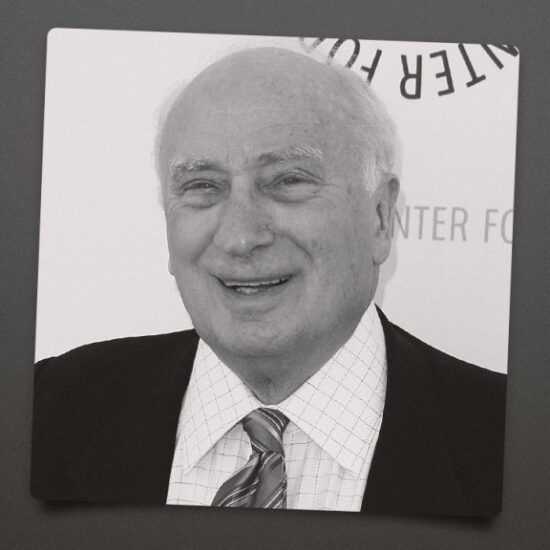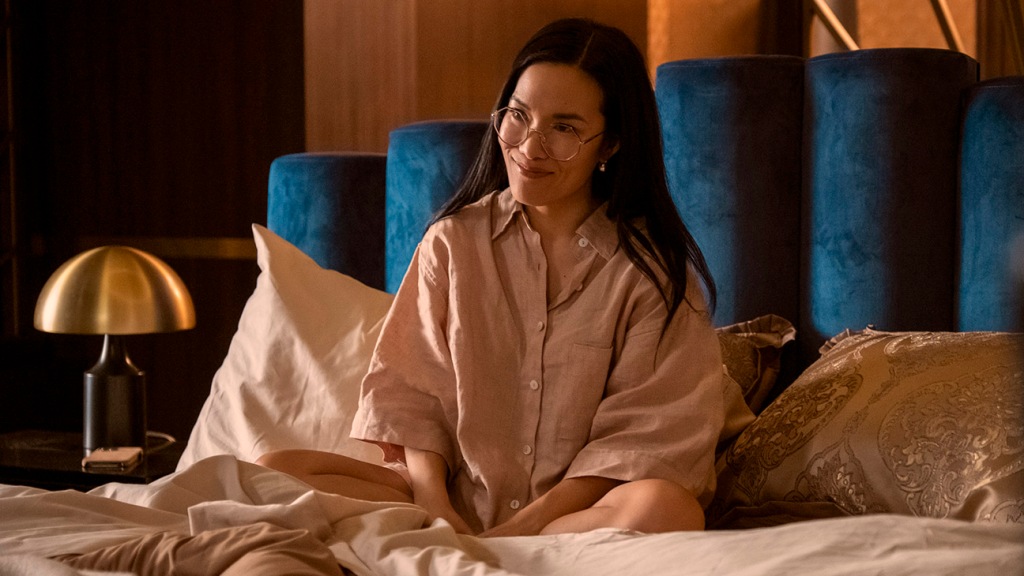
If you’ve ever been in a crowded parking lot, you’ll surely recognize the inciting incident in Netflix’s Beef: A truck nearly backs into an SUV, which honks extravagantly before speeding off. Maybe you’ll even relate to the impulse to do what the cars do next, even if you’ve never done it yourself: The truck chases the SUV down with the reckless abandon of a Fast & Furious racer, skidding into oncoming traffic and barreling over suburban lawns.
But Amy (Ali Wong) and Danny (Steven Yeun), the dueling leads of Beef, take things further still. The encounter precipitates an endless cycle of revenge, during which they deface each other’s property, sabotage each other’s careers, undermine each other’s families. It’s a hilarious premise on its face, and the half-hours fly by as wild twists twists pile up. What’s less expected, however — and what really lingers once the dust has settled — is the series’ emphasis on the characters’ flawed humanity, and its disarming sense of empathy for their existential despair.
Beef
The Bottom Line
A feast of sharp comedy, wild thrills and disarming empathy.
At the heart of Beef lurks a fear so overwhelming, it threatens to swallow both the protagonists whole. Late in the 10-episode season, Amy tremulously puts it to words in a therapy session: “Do you think love can really be unconditional?” she asks. “You know, there must be some point where we all fall outside the reach of love. Like the mistake is so big and then the love has to stop.” By then, we’re already seen how much of her and Danny’s lives have been predicated on the possibility that love could run out — each terrified to slip up or let others see they have, lest they lose everything they’ve worked for.
For Amy, a self-made businesswoman with a handsome husband (Joseph Lee’s George), an adorable daughter (Remy Holt’s Junie) and a chic Calabasas home, it means smiling through gritted teeth as she coos about how lucky she feels. For Danny, owner of a failing contracting business, it looks like reassuring his roommate/brother Paul (Young Mazino) and their long-suffering parents in Korea that he’s got everything under control — when in reality, he’s been reduced to begging for loans from his fresh-out-of-prison cousin Isaac (David Choe).
Both are on the verge of breaking by the time of their encounter, as Yeun and Wong establish in a pair of spectacular performances. Yeun’s Danny carries himself like a clenched fist — perpetually in anticipation of a coming blow, and ready to strike back at any time. Wong, in perhaps her most dramatic role to date, has rarely been better than she is here — her enormous eyes and pursed lips showing us every seam and crack in Amy’s placid masks. Both spend most of the season fixating on each other from a distance. But in moments when the pair come together, their energy crackles with something more complicated, and more entertaining, than simple attraction or hatred.
In their obsessive mutual hatred, we come to realize, each has found the one person they don’t need to put on a front for — that they don’t need to worry about impressing or disappointing, that they direct their ugliest impulses toward. In that light, it seems almost no wonder that their vendetta seems to have given them a fresh lease on life. Danny’s face lights up with glee in the final moments of the premiere, directed by Hikari (37 Seconds), as he runs away after defiling her home. We also see what looks like a smile on her face as she runs screaming after him. They’ve both found “a reason to start over new,” as Hoobastank sings in one of many turn-of-the-millennium needle drops that play as both uproariously ironic and movingly sincere.
Such tonal shifts are par for the course in Beef, which executes them so deftly it almost looks easy. Creator Lee Sung Jin (FXX’s Dave) grounds each plot development and mood change in a world that has the texture of real life (sometimes literally, as in the cracks and smudges on the walls of the modest church Danny attends) and in characters who seem as complex as real people. Each crazy decision is rooted in motivations we can understand, even if the characters executing them don’t. Each joke grows from characters performed and written so vividly, they seem to leap off the screen. An idle exchange about the nutritional content of Sara Lee pound cake is funny in its frivolity, but it’s also an efficient way to ensure two minor characters introduced halfway through the season — low-level criminals Bobby (Rekstizzy) and Michael (Andrew Santino) — feel as lived-in as any of the others.
Those powers of observation follow the characters to deeper and sadder places, too. As the season wears on, we become gradually acquainted with the anxieties and hurts that plague so many of the people in Danny and Amy’s orbit. There’s the quiet loneliness radiating from Fumi (Patty Yasutake), Amy’s mother-in-law, as she eats lunch alone. Or the humiliation twisting Paul’s face when he asks a loved one to help finance his dreams, only to be shot down. Amy and Danny seem to believe themselves unique in their unhappiness, and not entirely without reason — the perpetually upbeat George, for example, can only think to talk his wife out her malaise by assuring her, “I know a lot of people who battle depression and won.”
Beef knows better, though. Over time, its generosity toward these scared or lost souls becomes its own answer to Amy’s anxieties about the limits of love. By season’s end, the anger infecting its leads seems to have touched nearly everyone in their circles. We’ve witnessed both at their worst, howled at their most outrageous moves, gasped at the magnitude of physical and emotional destruction they’ve left in their wake. We’ve seen them and others cross the sort of lines that might threaten the strongest bonds — that might lead a couple to divorce, a family to turn on itself, a believer to lose their faith. And we’re left realizing that none of it has made us feel any less for them as humans. Maybe Amy’s right, and love can never truly be unconditional. But its grace, it turns out, stretches pretty damn far.








